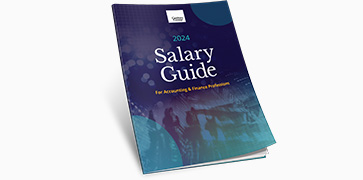After spending time and energy searching for the right new opportunity, you’ve accepted the offer. You know you should negotiate your salary, but you’re not sure how best to do so.
Don’t worry! The start of a new job is one of the best times to negotiate for more money because companies expect to have to offer a new hire more money to bring them on board. In fact, not negotiating now can hurt you down the line in two ways: future negotiations will start from a lower baseline, and the company may assume it’ll be easy to get you to settle for less.
Consider these tips to help you prepare to make your best case and make the most of this prime time to raise your salary.
1. Get Help From the Experts
Staffing or executive recruiters have the skills and insider knowledge of the current job market and can help you negotiate the best compensation package. You may feel like you have a good idea of what your skills are worth, but recruiters see what new hires are earning across industries and areas and can provide you with more insight into compensation trends that are most relevant to you.
2. Consider Your Benefits and Perks
Salary is usually the first thing you consider when considering your compensation, but it’s not the only element. Your benefits and perks can add a lot of non-cash value to your total compensation package. Depending on what you need and value, you can try to negotiate for more vacation time, a more flexible schedule, funds for professional development, increased benefits and more.
3. Back Up Your Argument
No company will give you extra money just because you ask. The stronger a case you can make for why you deserve a higher salary, the more likely you are to get it. You make that case not by pointing out how expensive things are or the size of your student loans — you have to show what you bring to the table. Review your work history to highlight tangible achievements — when you improved workflow to reduce errors, created a more efficient process, or increased sales. Ideally, you’ll have hard numbers to back that up, but a compelling story can be effective, too.
Negotiating a higher salary is important and nerve-wracking, but help is available. Download our 2024 Salary Guide to help ensure you have the best information for your next salary negotiation.













